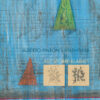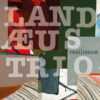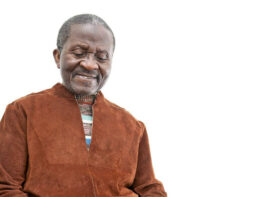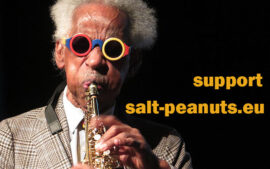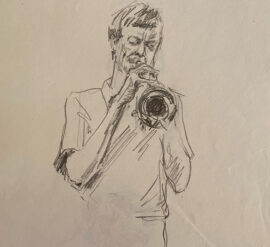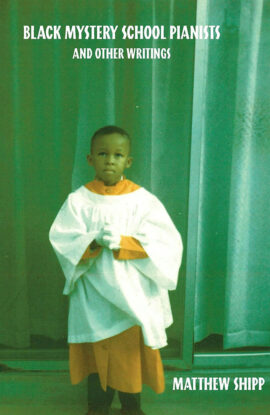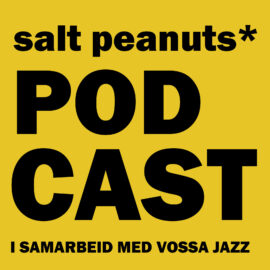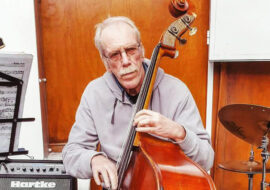
Sweet Tooth, released October 2022, is the debut album of composer, bassist and vocalist Mali Obomsawin from Maine, USA. The album is a compositional suite, as the artist has herself broken it down into movements. Descriptions of the movement structure and each track can all be found on the Bandcamp page for the album (HERE).
The album opens with the stark vocal-oriented track, «Odana», an 18th century ballad. It is a tale of the foundation of her family’s village, performed in the Abenaki language. She learned this track from the singing of Alanis Obomsawin, who I am familiar with through her documentary film Kanehsatake: 270 Years of Resistance, regarding the 1990 Oka Crisis in Quebec, a land between a group of Mohawk people and the town of Oka, Quebec. The track is a beautiful opening to the album, perfectly sets the tone as not only serious and respectful, but authentic to the highest degree.
The second track «Lineage» is an original track composed by the artist herself, and truly displays her abilities as a composer and performer. This brings us over in the second movement, opening with a funeral march, which gradually slides out into an impressively chaotic saxophone blowout. I am taken aback as this is someone who is clearly not afraid of challenging herself of the listener, never playing it safe or going the easy route.
I was trying to avoid commenting on every track, but they each have some unique element worth discussing. The fourth track «Pedegwajois» is a bass and guitar driven track, with spoken word, a bass clarinet filling the background, and a saxophone carefully findings its way into various parts of the track. Its a beautiful and respectful track, finely balanced to tell a story of ancient times, before colonisation.
We get another original track by the composer, «Fractions», a short, but beautiful track with a nice horn theme, and lots of instruments. again taking chances, absolutely venturing into «avant-garde» territory. Beyond this, it is worth mentioning that throughout this recored we can hear both tenor, soprano and alto saxophone, and we also get chants and spoken word delivered in multiple languages.
The final track «Blood Quantum (Nəwewəčəskawikαpáwihtawα)», the record’s longest track, is a worthwhile conclusion to the album. It starts off with a clattering drum solo, followed by an extensive piece of funky playing on the flugelhorn, electric guitar, cornet and several increasingly shrieking saxophone solos. It is clearly the most «jazzy» sounding track on the record, and at eleven minutes it ties the album together indigenous chanting over traditional drums, clearly marking the end.
It is an inherently American record, but make no mistake, it is absolutely a jazz record. There are clear hints of contemporary folk and americana strewn about. I also want to praise the soothing album cover, highlighting the composer and clearly highlighting that this is a piece of indigenous music. The album is a mere 37 minutes, but each and every of those minutes are well utilised by the musicians and arguably well spent by the listener. I am very excited to hear more from this young artist. Highly recommended!
Chris Risvik
Mali Obomsawin (b,v,dr), Savannah Harris (dr, v), Miriam Elhajli (g, v), Allison Burik (bcl, as, v), Noah Campbell (ts, ss, as), Taylor Ho Bynum (cor, flh)


